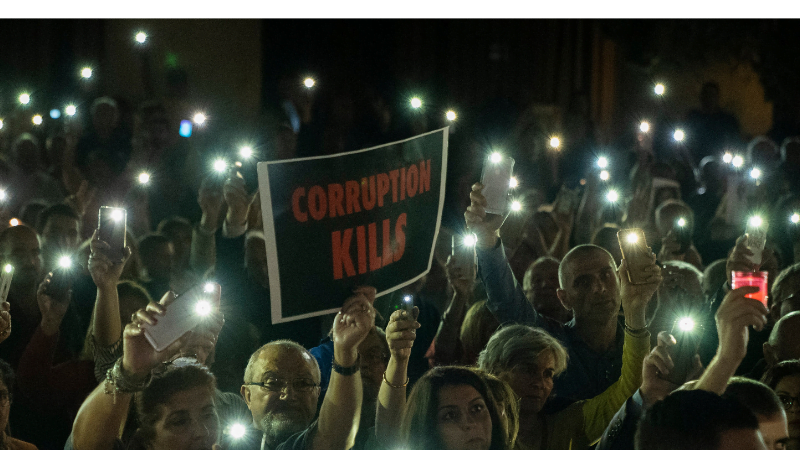Leading international press freedom and human rights organisations raised concerns on press freedom in Malta at the United Nations Human Rights Council in Geneva on Friday.
Article 19, Reporters Without Borders, the International Press Institute, the European Centre for Press and Media Freedom (ECPMF) and PEN International said they found it “deeply worrying” that the Maltese government has explicitly refused to accept a recommendation made by members of the Council for an effective and transparent public inquiry into who ordered the assassination of journalist Daphne Caruana Galizia.
The concerns on Malta raised at the UN by the NGOs on Friday followed widespread criticism of Malta by the Human Rights Council on press freedom, the protection of journalists, rule of law and corruption in Malta. Brazil, Germany, and France all called for a public inquiry into the assassination, which the Maltese government refused to accept.
Read: ‘No need for public inquiry into Daphne’s death’ – Joseph Muscat
Seventeen countries, including the US, France, Germany and Australia, also asked for improvements in freedom of speech and protection for journalists in the country.
Describing the situation around the murder of Caruana Galizia as an example of “ongoing impunity”, the organisations said that “ intentionally ignoring and downplaying the importance of this case” had dire repercussions for press freedom in Malta.
The inquiry has been demanded repeatedly by the Caruana Galizia family, local and international journalists, the European Parliament, media freedom organisations, and the Member States of the United Nations, yet Joseph Muscat has continued to reject the call, saying an inquiry was “not needed”.
Read: EP vote condemns Malta’s inaction on corruption, crime and protection of journalists
The organisations specifically made reference to the fact no inquiry was being conducted into whether her murder could have been prevented, the reprisals against her family and human rights defenders calling for justice, the repeated “hostile” destruction of the protest memorial on the orders of the Justice Minister, and the 27 ongoing posthumous libel cases against the Caruana Galizia family, including by the Prime Minister himself.
Public officials, including members of the Office of the Prime Minister, were accused of continuing to smear her name and noted that those defending her or calling for justice were routinely subjected to reprisals including verbal and physical abuse.
Read: Disinformation Watch #21: On a public inquiry into a journalist’s death
The statement noted that “prominent subjects of Caruana Galizia’s reporting, who may bear responsibility for her assassination, have not been placed under formal investigation or questioned.” The lack of progress in the investigation was described as a “truly disturbing indicator of impunity”.
In terms of the broader issue of media freedom in Malta, the NGOs referenced the fact that SLAPP suits are used against local media outlets, as recently as last week in the case of The Shift News, despite the government claiming to the Council that they are working towards their elimination.
Malta’s acceptance of some recommendations relating to freedom of expression while refusing others was an example of the country paying “lip service” to its obligations under international human rights law.












